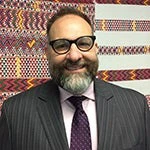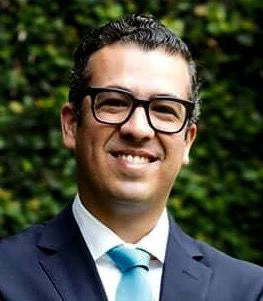 Unsplash
Unsplash
Sexual and gender minorities (or LGBTI people) can experience discrimination at various stages in their lives. For example, LGBTI students that are victims of bullying and stigmatization at school, often decide to drop out, inhibiting their access to earning opportunities in the future. Later on, while seeking employment, LGBTI applicants can encounter employers that will not hire them based on their sexual orientation or gender identity (SOGI). Notably, transgender individuals can face discrimination in this respect if their official identification, including ID photo, does not match their gender identity and expression. For the sexual and gender minorities who are employed, many are not entitled to the same benefits as their colleagues, including family-related leave, pension arrangements, and equal pay.
Inclusive laws not only discourage discriminatory practices for all social groups, including sexual and gender minorities, but can also help to shape future generations’ attitudes towards marginalized groups. The World Bank is stepping up its support for inclusive laws that facilitate sexual and gender minorities’ inclusion. The Equality of Opportunity for Sexual and Gender Minorities (EQOSOGI) report helps fill an important gap in data by assessing the laws and regulations that impact LGBTI people. The report covers 16 countries in six important areas of sexual and gender minorities’ lives: education, employment, access to public services and social protection, civil and political inclusion, protection from hate crimes, and from being criminalized. It also provides insights and tools for policymakers and development practitioners to consider prescribing laws that are SOGI-inclusive.
Going forward, the Bank will expand the number of countries covered under the EQOSOGI initiative, especially ensuring more coverage of IDA and FCV countries. As we look to the future, here are three lessons learned from our initial dataset comprising 16 countries, which offer insights on the path forward to achieving equality of opportunity :
- The EQOSOGI report recognizes the importance of inclusive laws for sexual and gender minorities’ inclusion, but their mere existence does not protect from discrimination. Implementation and enforcement of these laws is crucial. While laws can mandate the equal treatment of LGBTI people in different aspects of their lives, improper implementation or weak enforcement of these laws can limit LGBTI people’s access to the equality prescribed. Weak enforcement often arises from weak institutions and procedural systems, flawed design, or inadequate training of public officials. Conversely, strong implementation of inclusive laws ensures that LGBTI people can access recourse before the law when discriminated against.
- The report found that although more countries have taken steps toward equality for sexual minorities, in most countries, legal recognition of and protection for transgender people is not yet a reality. Special emphasis should be put on the differentiated impacts of laws on the various LGBTI groups – for example, protections for sexual minorities versus transgender people.
- The next phase of EQOSOGI will further contribute to the growing evidence base on SOGI inclusion – the data for which are lacking. The absence of SOGI-disaggregated data became increasingly apparent during the COVID-19 pandemic and remains a key consideration as we continue to navigate an inclusive and resilient recovery from the pandemic. Growing the dataset allows for better regional and trend comparisons and will help monitor sexual and gender minorities’ access to the market, inclusive education, public services, and social protection.
The reality is that no country has achieved full equality for its LGBTI citizens. SOGI issues have only recently emerged in the development agenda . As was the case for so many other development issues in the early days of recognizing and addressing them, a lack of data can render the issues, and the people behind them, invisible. The EQOSOGI initiative seeks to narrow this gap. Through partnership with governments, other multilateral development banks, and civil society, the World Bank remains committed to promoting inclusive futures for sexual and gender minorities across the globe.
Related:
Equality of Opportunity for Sexual and Gender Minorities
Sexual Orientation or Gender Identity at the World Bank
Inclusive Laws and Policies: IDAHOTB 2022 on World Bank Live




Join the Conversation